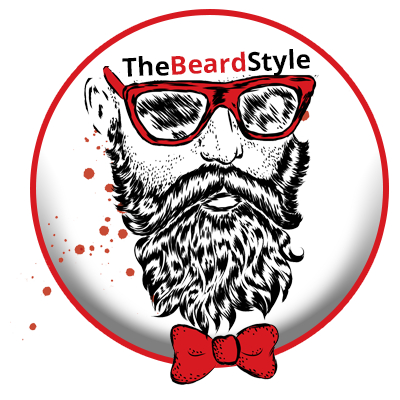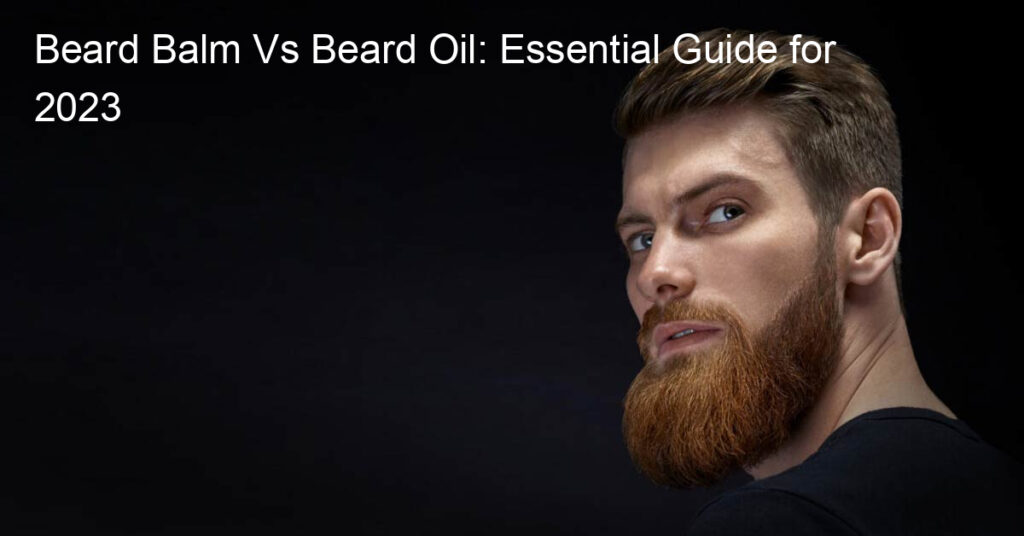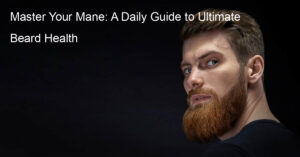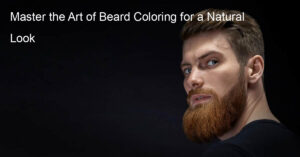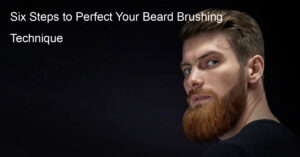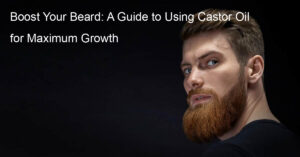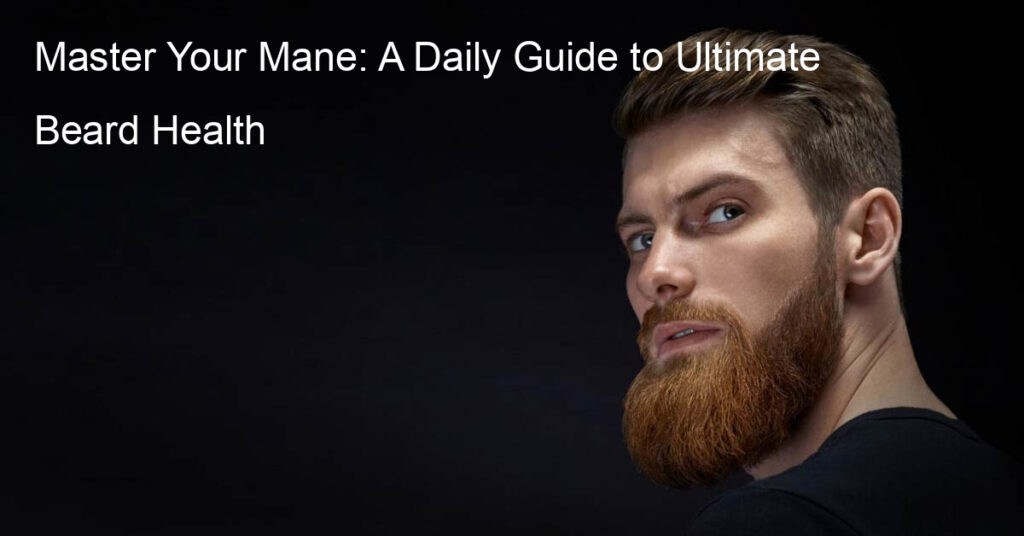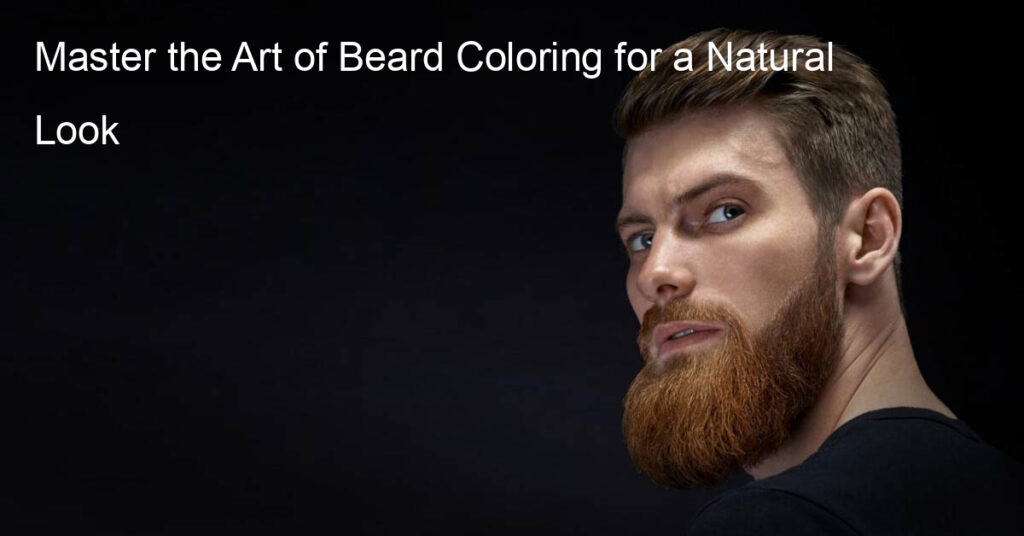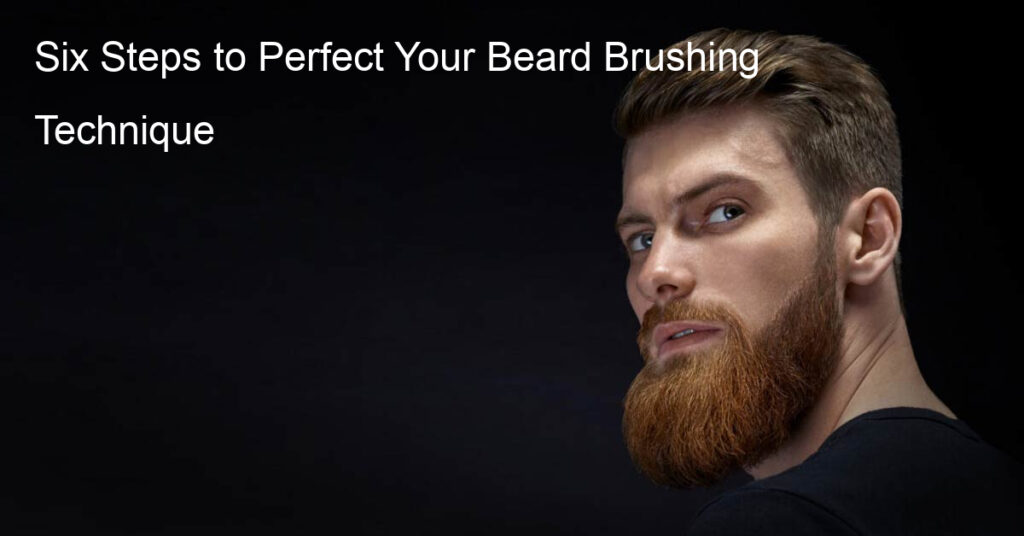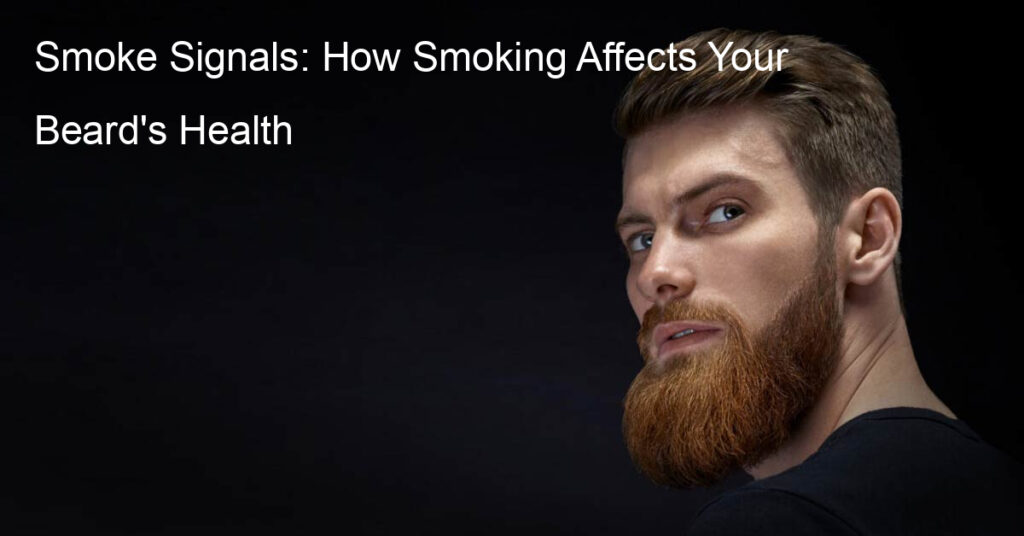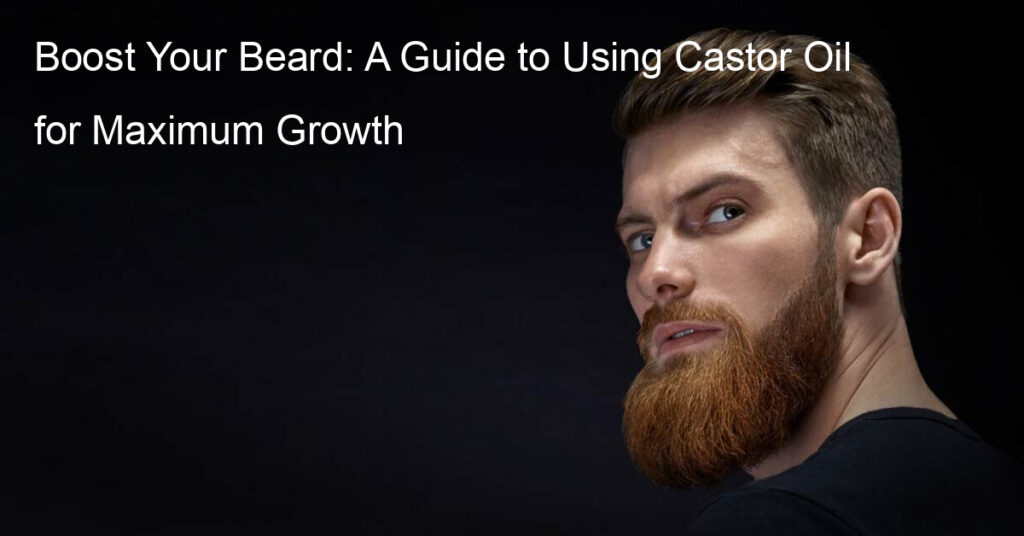The world of facial hair care has seen significant advancements, with a focus on delivering specialized products to cater to the needs of bearded individuals.
While maintaining a healthy and well-groomed beard requires dedication and the right tools, there are two essential products to consider: beard balm and beard oil.
These products not only improve the appearance but also provide essential nourishment and care to the beard.
Beard balm and beard oil have their unique properties and benefits, with each serving different purposes to suit individual preferences. Beard oil primarily serves to moisturize and condition facial hair while promoting healthy hair growth, whereas beard balm provides styling and shape to your beard.
Both products contain natural ingredients, such as essential oils, that nourish the skin beneath the beard and prevent itchiness or dandruff.
When choosing between beard balm and beard oil, it’s crucial to consider factors like your beard’s length, thickness, and the desired outcome you want to achieve. Individual preferences play a significant role as well.
The texture, hold, and fragrance of the product are important considerations when making a purchase for your beard care routine.
I spent numerous hours researching and testing different beard balms and beard oils to help you distinguish the best options that cater to your grooming needs.
Whether you desire a sleek and well-moisturized beard or a tamed and styled one, the following sections will delve into the finer details and comparisons of beard balm and beard oil.
Beard Balm Vs Beard Oil: Top Picks
I’ve carefully curated a list of the best products for both Beard Balm and Beard Oil enthusiasts.
Explore my selection below to find the perfect match for your grooming needs.
Striking Viking Beard Oil and Balm Set

Striking Viking’s Beard Oil and Balm Set is a must-have grooming kit for any modern gentleman looking to nourish and style their beard.
Pros
- Intensely hydrates and moisturizes skin and facial hair
- Delightful vanilla scent
- Natural and organic ingredients free of parabens and fillers
Cons
- Might not work magic for all beard types
- Potential to overuse due to appealing scent
- Limited to one scent option
I recently tried the Striking Viking Beard Oil and Balm Set, and I must say, it made a significant difference in my grooming routine.
The natural organic blend of ingredients, such as argan and jojoba oils, made my skin and beard feel properly moisturized, reducing itchiness and dandruff.
The vanilla scent is not overpowering and leaves a subtle, long-lasting fragrance—plus, there’s no oily residue to worry about. I found it easy to apply and style my beard with this kit, and as someone with sensitive skin, I appreciate the fact that it’s paraben-free.
That being said, the Striking Viking Beard Oil and Balm Set might not work wonders for all beard types. While it did a great job of softening my facial hair, some users may not experience the same results.
Additionally, the singular scent option might not appeal to everyone, though I found it quite pleasant.
Overall, I believe this beard grooming kit is worth considering for those looking to enhance their beard care routine. The quality ingredients, delightful scent, and durable hydration make it an excellent investment.
SheaMoisture Beard Conditioning Oil
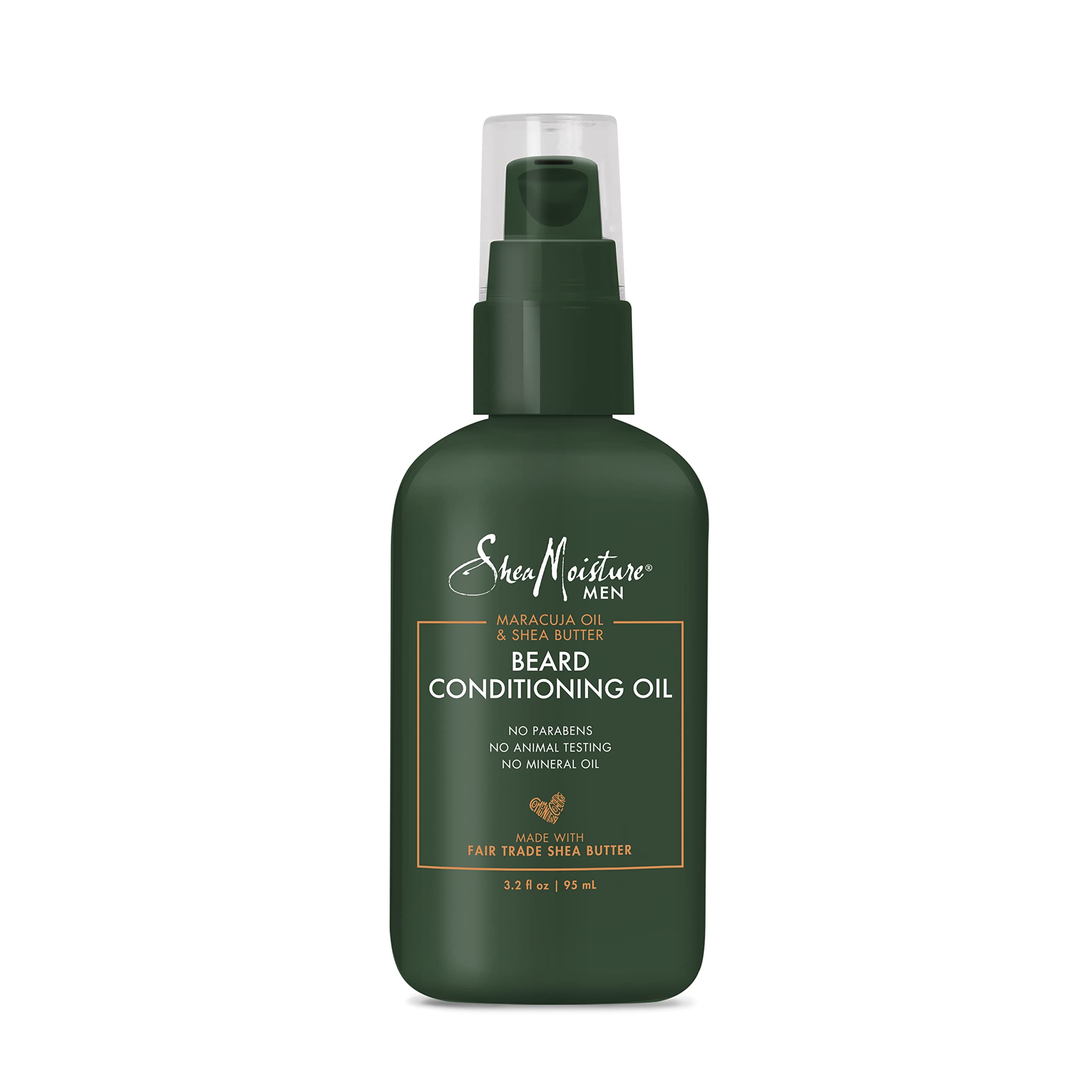
A must-buy for beard enthusiasts seeking a conditioning oil that moisturizes and softens without leaving residue.
Pros
- Moisturizes and softens beard effectively
- Made with Fair Trade Shea Butter
- Free from harmful ingredients like parabens and sulfates
Cons
- Scent may not be for everyone
- May need more product for thick, coarse hair
- Potential for spills/leakage during shipment
I recently started using SheaMoisture Beard Conditioning Oil, and it has quickly become a staple in my beard care routine. Made with Maracuja Oil and Shea Butter, this conditioning oil does a fantastic job of keeping my beard soft, moisturized and looking its best without leaving behind any greasy residue.
The outdoorsy scent is quite pleasant, but I can imagine it might not be everyone’s cup of tea.
The Fair Trade Shea Butter in this beard oil is a major selling point for me. I appreciate that the brand is committed to sourcing their ingredients ethically and making a positive impact on the communities they work with.
Furthermore, this beard oil is free from parabens, phthalates, mineral oil, and petrolatum, which are known to cause harm with prolonged use.
While I highly recommend SheaMoisture Beard Conditioning Oil, it’s worth noting a few drawbacks. For those with thick, coarse hair, you may need to use more products to achieve the desired level of softness and moisture.
Also, the packaging could use some improvement, as some customers have reported spills or leakage during shipment.
SheaMoisture Beard Conditioning Oil is an excellent addition to your beard care routine, providing both softening and moisturization. Its ethical sourcing and absence of harmful ingredients put it ahead of the competition, though packaging improvements would be beneficial.
Give it a try and experience the difference it can make for your beard.
Striking Viking Unscented Beard Balm
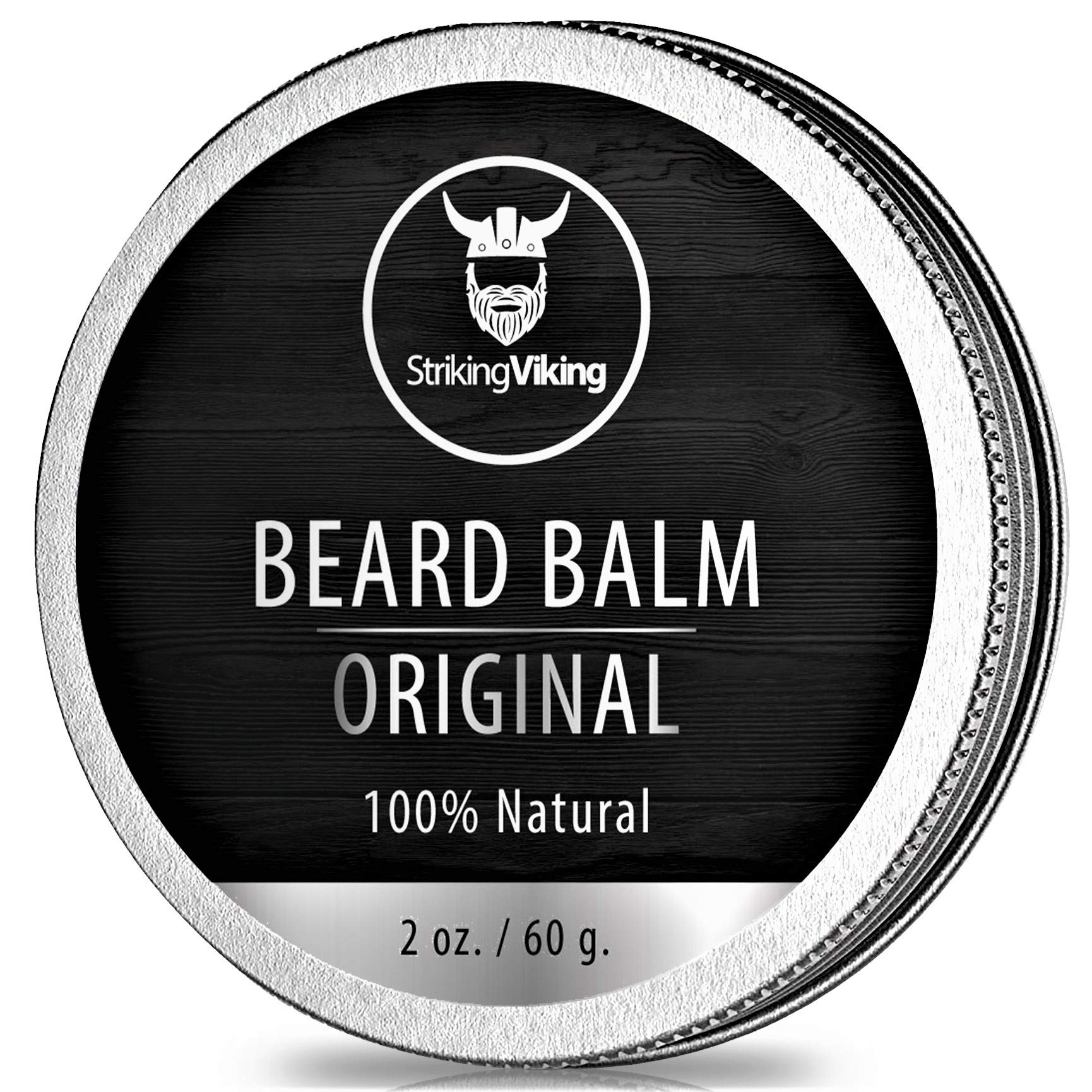
This Striking Viking Unscented Beard Balm is a great addition to your beard care routine, offering nourishment and styling control with all-natural ingredients.
Pros
- Offers styling control and hold
- Nourishes and protects skin with natural, organic ingredients
- Effectively combats itchiness and dandruff
Cons
- May leave hair with a slightly oily feel
- Some users may find the hold not strong enough
- Scent-free may not appeal to users who prefer a fragrance
When I first tried the Striking Viking Unscented Beard Balm, I immediately noticed its smooth and consistent texture, which made it easy to apply and wash off my hands.
The formula, which includes Shea Butter, Tea Tree, Argan, and Jojoba Oils, did an excellent job of keeping my beard soft and well-nourished throughout the day.
A little goes a long way, and I appreciated how effective it was in controlling my sometimes unruly facial hair. Nevertheless, I did notice that my beard felt slightly oily after application, though it wasn’t too uncomfortable.
The real highlight for me is that this balm is unscented, making it perfect for those who are sensitive to strong fragrances. My wife, in particular, was grateful for this – her sensitive nose often doesn’t agree with scented products.
The only minor downside for me was that the hold wasn’t as strong as I would have liked, but that could be easily solved by applying a bit more product or combining it with a beard wax for extra hold.
That being said, for daily wear, the current hold is still sufficient.
I highly recommend the Striking Viking Unscented Beard Balm to anyone looking for a high-quality, all-natural beard balm that nourishes, softens, and styles your facial hair while also being scent-free and easy on sensitive noses.
Honest Amish Beard Balm Leave-in Conditioner

This beard balm is an excellent choice for those looking to soften and nourish their beard while conditioning the skin underneath.
Pros
- Handcrafted with organic and natural ingredients
- Effectively softens coarse hairs
- Eliminates beard itch and beardruff
Cons
- Might not be suitable for those with nut allergies
- Can experience separation due to temperature fluctuations
- Scent might not appeal to everyone
I recently started using the Honest Amish Beard Balm Leave-in Conditioner, and my experience has been quite positive. The balm is made with only natural and organic ingredients, which is a vital factor for those who want to avoid harsh chemicals. Upon application, I noticed my unruly beard hairs became softer and more manageable.
Additionally, the balm has effectively reduced both itchiness and the appearance of beardruff. It is also highly conditioned for the skin, which I appreciate as someone who struggles with dry skin underneath my beard.
Regardless, I must caution that if you have nut allergies, the balm contains certain oils and butters that could cause a reaction. So it is crucial to test a small amount before applying it thoroughly.
One minor issue I encountered was the separation of the product when exposed to temperature fluctuations. It still works fine but requires a bit of extra effort when melting and applying it.
To return it to a smoother consistency, I let it sit in a warm place for a short while and then shook it up before using it again.
Finally, let’s talk about the scent – it has subtle notes of Cedarwood, Anise (licorice), and Clove. Personally, I didn’t mind the smell, but it may not be everyone’s cup of tea.
Despite this, I would highly recommend giving the Honest Amish Beard Balm Leave-in Conditioner a try. It’s effective conditioning and natural ingredients definitely outweigh any minor drawbacks.
Honest Amish Classic Beard Oil

I highly recommend Honest Amish Classic Beard Oil for those seeking a high-quality oil that softens the beard and conditions the skin.
Pros
- Handcrafted in the USA
- Organic and natural ingredients
- Softens beard and conditions skin
Cons
- Might be too greasy for some users
- Scent may not appeal to everyone
- Large bottle may be cumbersome
I recently tried Honest Amish Classic Beard Oil and was quite impressed with the results. The product is made with a blend of organic and natural oils, including pumpkin seed oil, avocado oil, and argan nut oil.
These ingredients work together to nourish and hydrate both the beard and the skin underneath. After using this oil, I noticed a significant improvement in the softness and manageability of my beard.
One of the things that stood out to me about this beard oil is its commitment to using high-quality, organic ingredients. As someone who values natural products, this was a major selling point for me.
The oil is handcrafted in the USA, which further adds to its appeal.
However, the scent of this beard oil may not be to everyone’s liking. It has a strong aroma featuring notes of cedarwood, star anise, and cloves, which some may find overpowering or too similar to their grandfather’s cologne.
The oil is also somewhat greasy and takes some time to fully absorb, which can be problematic for those with oily skin. Lastly, the large bottle may be difficult to maneuver and could be cumbersome for some users.
Despite these drawbacks, I still believe that Honest Amish Classic Beard Oil is a solid choice for those looking to enhance the health and appearance of their beard.
The organic ingredients, quality craftsmanship, and noticeable results make this beard oil a worthy addition to your grooming routine.
Buying Guide
As someone who’s passionate about facial hair care, I want to share some valuable information for choosing between beard balms and beard oils.
To make the best decision, it’s essential to consider your beard type, length, desired style, and personal preferences.
Considering Your Beard Type
The first thing to think about is your beard type. Some people have thick, coarse, or curly beards, while others have fine, straight, or thin beards. Beard balm can help in managing the coarser, curly beard by providing a little more hold and control.
On the other hand, beard oil works well for fine, straight beards as it can offer hydration and conditioning without weighing the beard down.
Evaluating Length and Desired Style
Next, you must consider the length and desired style.
For a shorter beard, beard oil may be sufficient as it helps create a smooth, well-conditioned look. Nevertheless, if you’re sporting a longer or fuller beard, beard balm might be more suitable as it gives more hold and styling possibilities.
Analyzing Ingredient Profiles
Another essential factor in making your choice is the ingredient profile. Here’s a simple comparison of the main ingredients found in each:
| Beard Balm | Beard Oil |
|---|---|
| Beeswax | Carrier Oils (e.g., jojoba, argan) |
| Shea or Cocoa Butter | Essential Oils (e.g., cedarwood, eucalyptus) |
| Carrier Oils | |
| Essential Oils |
Both products share carrier and essential oils. What sets beard balms apart is the inclusion of beeswax and shea/cocoa butter, which provide that denser consistency and holding power.
On the other hand, beard oils rely primarily on carrier and essential oils to offer conditioning and subtle scent.
Considering Personal Preferences
Finally, your personal preference plays a significant role. Beard balm has a thicker consistency and appeals to those who want more hold and a slightly matte finish.
In contrast, beard oil offers a lightweight feeling and a more natural shine. The scent also matters; if you prefer lighter, more subtle fragrances, beard oil might be a better choice. For those who like a firmer, traditionally masculine scent, beard balm could be the better option.
By taking into account your beard type, length, desired style, ingredients, and personal preferences, making the right choice between beard balm and beard oil should be a simple and enjoyable experience.
Frequently Asked Questions
What are the main differences between beard balm and beard oil?
The main differences between beard balm and beard oil are in their ingredients and consistency. Beard oil is typically a liquid mixture of natural oils such as jojoba, argan, and grapeseed oil.
It is best for conditioning and moisturizing your beard, as well as reducing itching and dandruff.
On the other hand, beard balm is a semi-solid product containing natural oils, as well as beeswax and/or shea butter. This provides a slight hold for styling your beard, in addition to the moisturizing and conditioning benefits.
When should I use beard balm, and when should I use beard oil?
You should use beard oil when your primary goal is to moisturize and condition your beard, particularly if it feels dry or itchy.
It’s best to apply beard oil after showering when your facial hair is clean and damp for maximum absorption.
Beard balm, on the other hand, is great for when you need a bit of hold for styling or shaping your beard. It’s best utilized when your beard is starting to gain some length and needs control.
You can also apply beard balm after a shower on a clean and damp beard.
Can I use both beard oil and beard balm together?
Yes, you can use both beard oil and beard balm together. In fact, it’s recommended for those with long or thick beards that require extra moisture and control. To do this, apply beard oil first to moisturize and condition the beard, followed by beard balm to provide hold and additional nourishment.
Is beard balm or beard oil better for short beards?
For short beards, beard oil is generally the better choice. It provides the moisturizing and conditioning benefits your beard needs without adding extra hold or weight that might stiffen shorter facial hair.
However, if you have a specific need for styling or shaping a short beard, a light application of beard balm could be helpful.
How do beard balms and oils benefit my beard?
Beard balms and oils provide essential moisture, nourishment, and conditioning to your facial hair.
They help reduce itching, flaking, and dandruff, as well as make your beard softer and more manageable. Beard balm, due to its beeswax and/or shea butter content, also offers a bit of hold for styling purposes.
What is the difference between beard balm, beard oil, and beard butter?
Beard balm is a semi-solid product offering styling hold and conditioning benefits; beard oil is a liquid blend of natural oils mainly for conditioning and moisturizing, while beard butter is a whipped, creamy product sitting between the two in terms of consistency.
Beard butter typically provides deep conditioning and a light hold, making it suitable for managing medium to long beards without feeling heavy.
